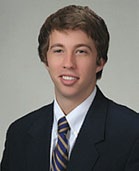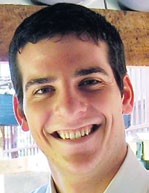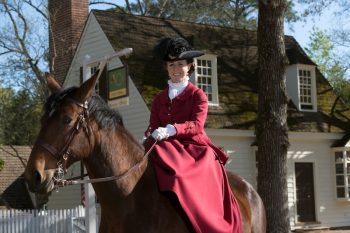Founded The Unique Sheep to produce hand-painted yarn for knitting and crocheting. Works full time with The Unique Sheep.
“Define success for yourself. It is easy to get caught up in the aspirations of others and believe that to be successful you need to have X amount of sales, so many employees or the support of wealthy venture capitalists. Carefully think about what you want for your business and yourself, and you may find that those goals do not apply. The Unique Sheep will never make millions in annual sales or have hundreds of employees, and we never took funding from venture capitalists. In fact, if any of those things were to happen we wouldn’t be the business that we are today and (we) wouldn’t be as happy. To be successful you don’t need to be big or flashy, you just have to decide on your own goals and meet them.”
 Founded 3P Speech to provide speech, publishing and debate training to high school students. Pursuing masters in divinity and counseling at Reformed Theological Seminary in Orlando and coaching a high school speech and debate team.
Founded 3P Speech to provide speech, publishing and debate training to high school students. Pursuing masters in divinity and counseling at Reformed Theological Seminary in Orlando and coaching a high school speech and debate team.
“Since our small beginnings, I have met a multitude of people who have shared my vision for affordable high school speech and debate coaching. I have contracted 24 coaches from 11 states working in our four branch sites — debate, speech, publishing and debate evidence. You have to be willing to put in the necessary hours of work to attain success in whatever endeavor you are pursuing. Failures will happen, but that only makes success that much more enjoyable. Find your niche, and work incredibly hard to provide for that interest group. Most of all, though, do what you find joy in. If you don’t enjoy what you’re working toward, it doesn’t matter how much success you have.”
 Co-founded with Ben Comer (’11) mySavu to offer students discounts at local businesses. Since graduating has founded Direct Dermacare, an authorized discount seller of skin care products, and co-founded with Tim Griesser (’10) Get On Social, an online marketing and software development firm.
Co-founded with Ben Comer (’11) mySavu to offer students discounts at local businesses. Since graduating has founded Direct Dermacare, an authorized discount seller of skin care products, and co-founded with Tim Griesser (’10) Get On Social, an online marketing and software development firm.
“Many people stand on the sidelines coming up with idea after idea for ventures. Unfortunately they never get past this brainstorming step. My advice is to jump in and act on one of these ideas. The lessons learned from even a dead end are invaluable. Once they jump into a potential venture, they will really start to understand the true makeup of a viable venture and more importantly, catch the entrepreneurial bug. Once they try to start their first company, they will be hooked on the thrill, the responsibilities, the potential, the rapid personal growth and the sense of accomplishment that comes along with entrepreneurship.”
Founded Wear to Win to design, manufacture and sell ladies’ golf apparel and activewear; now available in 50 pro shops nationwide.
“As I worked closely with the Wake entrepreneurship office, I learned that building a business is a process which requires high energy, continuous creativity and an abundance of perseverance. It takes so much more than a solid business plan and motivation. You must be patient and able to handle adversity, which can be challenging as a young student. Be prepared to grow up fast! Don’t be shy about your ideas — connect with professors and classmates: network, network, network. You will need passion and an incredibly strong belief in your ideas and in yourself. Do a feasibility study so you know your market better than anyone else.”
 Founded Adia to sell handmade jewelry from Kenya. After graduating with degrees in studio art and communication, she formed a new company, Lydali, with Lydia Harter (’08), to sell clothing, jewelry and accessories by artisans from 14 countries in Africa, Asia and Central America. Price is also community marketing manager at Kiva, a nonprofit that provides loans to entrepreneurs all over the world.
Founded Adia to sell handmade jewelry from Kenya. After graduating with degrees in studio art and communication, she formed a new company, Lydali, with Lydia Harter (’08), to sell clothing, jewelry and accessories by artisans from 14 countries in Africa, Asia and Central America. Price is also community marketing manager at Kiva, a nonprofit that provides loans to entrepreneurs all over the world.
“With no business experience, I really leaned on the advice of professors and fellow students to teach me about managing financials, scaling, marketing and building a website. I started selling jewelry made with Kenyan beads before we had the operations on the ground fully set up, and I was able to test the market and prove that the product was desirable, as we sold out of jewelry quickly. By the time I was ready to set up our website and fine-tune the manufacturing and distribution, I had a good sense of who our customers were, what quantities we should be producing and what market we should be targeting.”
 Launched with Professor of Economics Sylvain Boko (P ’09), the Dvelo Fund to fund student trips to developing countries. Since graduation has founded develoflies.com to sell fly-fishing gear, with a portion of the profits going to build wells in developing parts of the world; and dvelo.org, a microfinancing site. Now CEO of Crowdtilt, an online site that allows groups to raise money for a common cause.
Launched with Professor of Economics Sylvain Boko (P ’09), the Dvelo Fund to fund student trips to developing countries. Since graduation has founded develoflies.com to sell fly-fishing gear, with a portion of the profits going to build wells in developing parts of the world; and dvelo.org, a microfinancing site. Now CEO of Crowdtilt, an online site that allows groups to raise money for a common cause.
“The two most valuable assets to have as an entrepreneur are trust and a network. You need to be building genuine relationships as early as possible, and genuine relationships are built on trust; trust in your word, trust in your capabilities. More than an idea, more than capital, more than smarts — if you don’t have trust and a network (and you need both), you will struggle to get anything substantial done. Advisers to help refine an idea, relationships to help raise capital, recruiting and hiring talented people; these all require trust and a network beforehand. And the reason you need both is because one isn’t worth very much without the other.”
Founded Wake Wash, a laundry service for students. After graduation sold the company to another group of student entrepreneurs who after their graduation sold the company to a third group of student entrepreneurs. Graber is a third-year law student at Wake Forest and part of the Apps for the Greater Good LLC team at Wake Forest, developing Verbal Victor, an iPhone/iPad app that helps people with disabilities communicate. Musgrave works for Navigant Consulting. Smith is a senior marketing associate at Vistaprint, an online provider of printed materials for small businesses.
“I think the greatest thing Wake Wash taught me was the power of perseverance. Not only is starting a business difficult, but operating an established venture also takes a lot of drive and collaboration from a great team. The three of us all had very different but important skills, which helped to keep the business successful. I can’t wait to have that experience again with my next business.”
— Eleanor Smith











